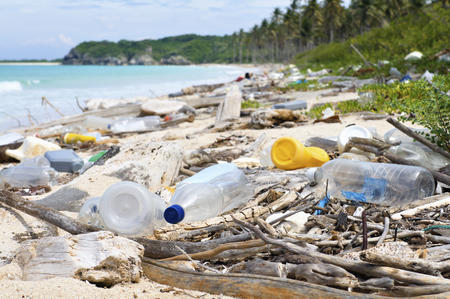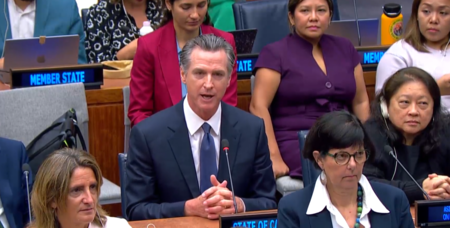We’re now exactly six weeks out from the start of COP28 and expectations are building. A few months ago I set out my views on six areas that needed to be addressed to ensure impact. Six weeks out, where are we on those issues?
Spearheading a fossil fuel phaseout
Unsurprisingly, fossil fuels have continued to dominate climate headlines fuelled by continuing instability in producer countries. The need for an accelerated phase out to reduce global temperatures is as urgent as ever. However, a lack of clear renewable electricity targets and associated enabling policies are slowing the global transition to net zero.

In June, Global Energy Monitor reported that China is set to hit its wind and solar power target five years early. New solar photovoltaic (PV) in 2023 is now expected to top 150GW here, almost doubling the 87GW installed in 2022. This is an incredible achievement and shows what’s possible with significant policy shifts, Yet, as energy demand continues to rise, some countries are intensifying coal production. We will not make the progress needed through continuing with a reliance on fossil fuels. We need a laser focus on clean energy in every part of the world.
Maintaining food security while ensuring sustainable farming systems
During Climate Week NYC, the COP28 Presidency invited COP Parties to sign the summit’s Declaration on Resilience Food Systems, Sustainable Agriculture and Climate Action and to align this commitment with their individual climate action plans. It is welcome that the Presidency is placing a particular emphasis on regenerative landscapes, and linking up opportunities to reduce greenhouse gas emissions, support farmers’ livelihoods and protect water quality and biodiversity. These are much needed discussions, not least for establishing how such transitions can be financed.

This focus on regeneration has been a cornerstone of the Under2 Coalition’s work in the Peruvian Amazon over the past two years. Together with WWF and the Tropical Forest Alliance, we’ve been working with small-scale farmers to take deforestation out of cattle ranching and regenerate local habitats for the benefit of all species. On larger scales, such an approach can help to reverse the damage of commercial agriculture and ensure systems are more resilient to a changing climate.
Financing a new future
In 2022, the UN Environment Programme estimated that financial support for developing countries’ annual adaptation needs to be $160-340 billion by 2030 and $315-565 billion by 2050. There is much debate on where these funds should come from. However, we should not lose sight of the fact that fossil fuel subsidies were estimated at $7 trillion globally in 2022, Differing financial incentives could be made to accelerate climate mitigation and adaption. However, disappointingly, many countries continue to drag their feet.
Positive steps were taken however at EU level this month, with EU climate ministers reaffirming their commitment to deliver the collective $100 billion goal for climate finance by 2025, adding that they expected the goal could even be reached this year. This now forms are core part of the bloc’s negotiating position, alongside a strong push for greater fossil fuel reductions.
Understanding the link between biodiversity and climate change
News on biodiversity loss continues to be bleak, with a recent State of Nature report showing that the abundance of species studied in the UK has declined by 19% on average since records began in 1970. This is a tragedy, but it also has an impact on the wider climate crisis. We need nature to store carbon and provide solutions to climate-related issues such as flooding and droughts. Net zero targets without nature will be meaningless. Despite the interlinkages, a big challenge remains that the climate and biodiversity agendas are not sufficiently aligned.

Following the ambitious biodiversity COP – COP15 – last December, there have been some exciting developments on habitat protection, with Ecuador recently agreeing the largest ever deal to swap debt for nature to support conservation in the unique Galapagos Islands.
However, as with climate change, progress is too slow. At COP28 Parties will be expected to produce National Biodiversity Strategies and Action Plans showing how they will align with the Global Biodiversity Pledge made last year. These should cover issues ranging from deforestation to plastics recycling and removal from the oceans, water scarcity and redirecting farming subsidies towards projects that improve natural ecosystems and restore depleted soils. As with climate change more broadly, these actions can’t come soon enough.
Being held accountable for climate targets
It was inspiring to see subnational leaders represented for the first time at the UN’s Climate Ambition Summit in September, with several Under2 Coalition governors speaking on their innovative climate work. Among the hard-hitting messages were urgent calls for climate justice and an end to ‘greenwashing’, which is damaging real efforts to tackle serious global issues.

However, in the UK, the government chose that day to announce it would be revisiting net zero targets. This is the last message we need to be sending at a time of climate crisis – when vulnerable countries are calling for more support and when we need governments to demonstrate their leadership on the biggest collective issue of our time. COP will provide a valuable opportunity to do this, and the onus will be on these governments to step up and show that they are taking the steps needed to meet ambitious climate goals.
I’m proud however that our North America co-chair for the Under2 Coalition, California, has raised the bar with accountability this year. In September, the state passed legislation requiring companies doing business there and earning at least $1 billion a year to report climate pollution across their supply and value chains. It added further legislation for companies with revenue over $500 million to report on their climate-related risks. This will help to hold companies to account for environmental damage and should foster a greater culture of responsibility in years to come.
Ensuring no one is left behind
We’ve welcomed statements from both the COP28 Presidency and the UN around equity at this year’s Summit. In August, UN Climate Change Executive Secretary Simon Stiell affirmed that “the voices of youth, women, local communities, Indigenous Peoples, and those most impacted by climate change will be heard and reflected within the process.”
This has been highlighted too in plans for the first ever Local Climate Action Summit on 1-2 December, where subnational governments from all levels will come together to give their perspectives on the climate crisis and offer their support in developing, implementing and meeting targets that meet the needs of both people and planet. The Under2 Coalition will be hosting its own session on the second day, looking at the role of states and regions in driving meaningful progress.
Still our best hope for a cleaner future
As ever, there is cause for concern as well as for optimism. But COP remains our greatest collective hope to make the changes needed to curb global temperature rises and maintain a liveable planet for future generations. Climate Group will be here, representing the Under2 Coalition and all our corporate members and pushing for agreements that are both meaningful and measurable. It can be done. And it must be done.



